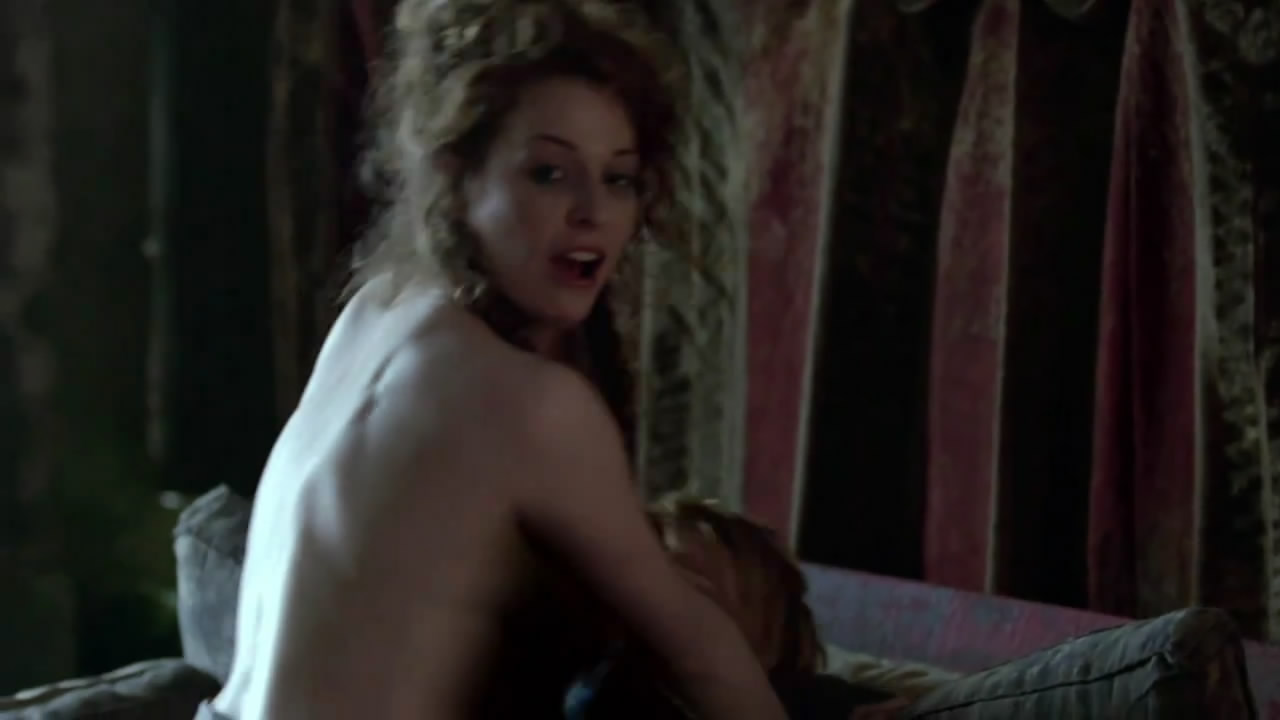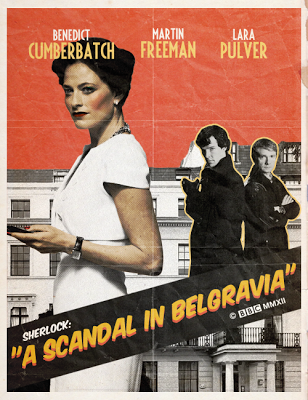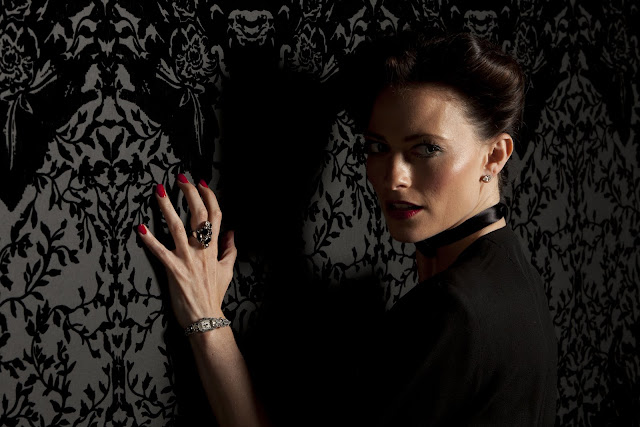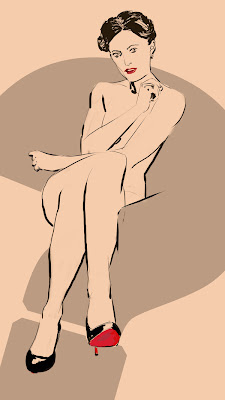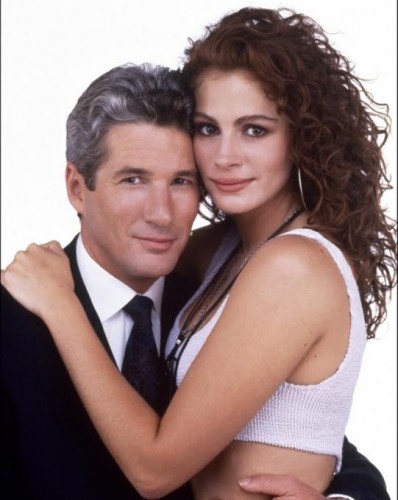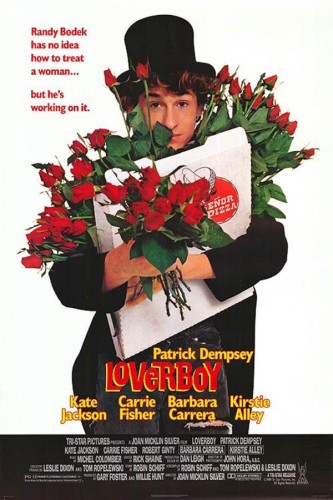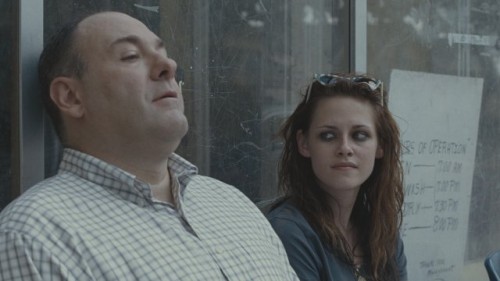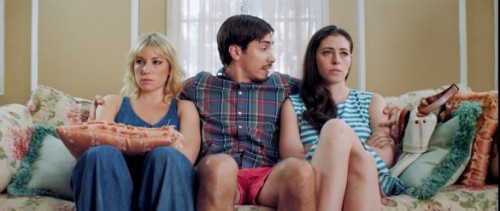While Game of Thrones is frequently problematic, one of the things it does well is having a wide range of interesting female characters. Despite this, there are some women on the show who fall into the roles that are normally reserved for women on film and television; that is, to tell us things about dudes. This is particularly true of the female sex workers on the show. A perfect example of this is Ros. Interestingly, Ros is a character that does not exist in the books. She is an invention of the television show’s writers and producers. It is likely that she takes the place of two other sex worker characters who are women of colour.
Ros is the first sex worker we see on Game of Thrones. She is masterfully acted by Esme Bianco who does wonderful things with the limited material she is given. Her portrayal of Ros allows us to view her as intelligent, witty, ambitious, and pragmatic. At first Ros manages to avoid most of the traditional sex worker tropes that exist such as the disposable sex worker and the hooker with the heart of gold. She makes no apologies for being a sex worker and does not consider herself to be a tragic victim of her circumstances. She is simply making money in the most efficient way she knows how.

When we are introduced to Ros, she is working in Winterfell but as war approaches she decides to try her luck in King’s Landing expressing the view that if all the men leave for war there is not going to be much for her in Winterfell. Once there she goes from being “just a sex worker” to getting involved in the politics of the realm by becoming the right hand woman of Little Finger and subsequently double crossing him by becoming an agent for Varys. However despite her many interesting qualities and potential for interesting storylines, Ros basically exists for one reason to provide exposition regarding male characters on the show while naked. She is sexposition personified.
The very first time we see her she is entertaining Tyrion Lannister at the Winterfell brothel. Their interaction serves to inform us that Tyrion is both famous for being a philanderer and generally a good hearted person who is nice to people who exist on the margins despite his great wealth and power. Next up there is Theon Greyjoy Ros helps reveal to us as the audience a number of things about him. Firstly, that he has a chip on his shoulder about his status in Winterfell. Secondly he is basically a hostage living with the Starks because of his father’s traitorous actions. She helps to reveal his particular insecurities as well as expose some of his backstory, all without any clothes on – handy. In fact Ros basically spends the entirety of season one with her clothes off allowing men to tell her things about themselves. Littlefinger gets to fill in some back story while she is naked on screen. Joffrey reminds us of just how evil he is (again) by forcing Ros to brutally beat her friend and fellow sex worker when Tyrion buys a night with them for Joffrey as a present. On and on it goes.

The saddest part about Ros is that while she mostly exists as a plot device, there was always potential there for her to develop as a character. She had many traits that would have made her very interesting to watch as the story unfolded. However that is not to be, because those who make the decisions decided that Ros had outlived her usefulness. She had proven just how terrible Little Finger and Joffery were and the final flourish was her death. Ros turned out to be a disposable sex worker after all and the way that she is killed off proves it.
It was her compassion for Sansa Stark that is Ros’ downfall. She tells Varys details that only she could know about Littlefinger’s plans for her and despite Varys promising to protect her he finds out and she ends up dead. Her death is graphic and horrifying. We do not see her die, we are just treated to a vision of her corpse as Littlefinger tells Varys that one of his investments had betrayed him and therefore had to be disposed of. We are treated to a vision of Ros tied to Joffery’s bed, semi clothed with arrows piercing her body including her genitals. The camera lingers over the gory details. The idea is clear, as we look at Ros’ ravaged body we are meant to think about Littlefinger and what a horrible person he is. Ros’ death is a simply a footnote in the stories of the great men who she fucks.
Interestingly, Esme Bianco mentioned in an interview that she argued for having less nude scenes so that she could have cool costumes like the other characters on the show. Perhaps due to her self-advocacy, her character ended up with no nude scenes in season three, and it seemed as though she was very much on the verge of becoming a proper character, one that is fully realized and has their own plot. Before that could actually happen, she was killed off as if she didn’t matter at all.
There are many things I enjoy about Game of Thrones, but there are perhaps just as many things that I find problematic within it; their treatment of Ros is definitely one of them. The excuses that Game of Thrones is set in both an extremely patriarchal and extremely violent culture do not fly. I think they are cop-outs. The show has beaten us over the head with the evilness of Joffrey and Littlefinger. I personally feel that the scene where he takes Ros aside when she starts crying in front of one of her clients after the baby of her friend is killed in front of her, is much more chilling than the gruesome horror of her death. Subtlety is obviously not something the show is interested in. At the end of the day, the Game of Thrones treatment of Ros simply reinforces dominant societal narratives about sex workers, i.e. that their humanity is unimportant and that it is a dangerous occupation that women should know better than to take up. This is disappointing from a show that is often progressive in the way that it handles female characters.
Gaayathri Nair is a writer currently located in Kuala Lumpur, Malaysia, although this is set to change soon. She is the child of diaspora two times over and is passionate about all forms of social justice. She likes to travel and prefers television to movies; however, she feels a strange compulsion to watch all movies that have fish-eating people in them, no matter how terrible they are. She has a Bachelor’s degree in Political Studies from the University of Auckland and she has spent her formative years working at various types of feminist organizations from the community to the regional in both New Zealand and around Asia. Her work has been featured around the feminist blogosphere including Flyover Feminism, Feministe, and Leftstream as well as in United Nations and NGO publications. You can find more of her work at her blog A Human Story and tweet her @A_Gaayathri.
